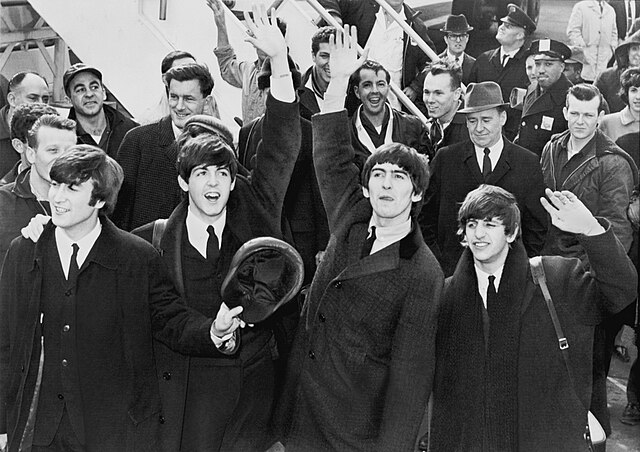New pop is a loosely defined British-centric pop music movement consisting of ambitious, DIY-minded artists who achieved commercial success in the early 1980s through sources such as MTV. Rooted in the post-punk movement of the late 1970s, the movement spanned a wide variety of styles and artists, including acts such as Orange Juice, the Human League, and ABC. The term "rockist", a pejorative against people who shunned this type of music, coincided with and was associated with new pop.
Producer and New Musical Express writer Paul Morley (left), a pivotal figure in new pop
Pop music is a genre of popular music that originated in its modern form during the mid-1950s in the United States and the United Kingdom. During the 1950s and 1960s, pop music encompassed rock and roll and the youth-oriented styles it influenced. Rock and pop music remained roughly synonymous until the late 1960s, after which pop became associated with music that was more commercial, ephemeral, and accessible.
The Oxford Dictionary of Music states that the term "pop" refers to music performed by such artists as the Rolling Stones (pictured here in a 2006 performance).
Amr Diab, Egyptian pop star, named "El-Hadaba", for achieving high records sales in the Middle East and Africa for the last three decades
Bing Crosby was one of the first artists to be nicknamed "King of Pop" or "King of Popular Music".[verification needed]
The 1960s British Invasion marked a period when the US charts were inundated with British acts such as the Beatles (pictured 1964).




![Bing Crosby was one of the first artists to be nicknamed "King of Pop" or "King of Popular Music".[verification needed]](https://upload.wikimedia.org/wikipedia/commons/thumb/4/4d/Bing_Crosby_1930s.jpg/480px-Bing_Crosby_1930s.jpg)
